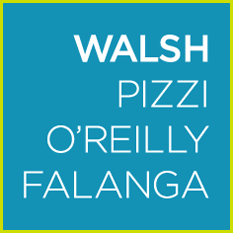Updated Client Alert – The Paycheck Protection Program and Health Care Enhancement and Loan Forgiveness
This memorandum updates our previously published Client Alert concerning relief for small businesses impacted by the COVID-19 pandemic (available here). The Paycheck Protection Program and Health Care Enhancement Act (the “Enhancement Act”)[i] is a second round of emergency economic stimulus funding that became law on April 24, 2020. The Enhancement Act is a $484 billion economic relief package which includes funding to replenish the U.S. Small Business Administration’s (“SBA”) Paycheck Protection Program (“PPP”); the Economic Injury Disaster Loan (“EIDL”); emergency grant programs; and also earmarks funding for healthcare providers to assist in treating and testing for COVID-19. On May 15, 2020, the SBA released the Loan Forgiveness Application and accompanying instructions for the forgiveness of loans under the PPP.
Background
The Coronavirus Aid, Relief, and Economic Security Act (“CARES Act”)[ii] became law on March 27, 2020, and offered small business entities an opportunity to borrow an amount equal to two and one-half times monthly payrolls and obtain forgiveness of that loan amount provided certain employee retention and other criteria are met under the newly-announced Paycheck Protection Program. Due to overwhelming demand, funding was exhausted and on April 15, 2020, U.S. Treasury Secretary Steven T. Mnuchin and SBA Administrator Jovita Carranza issued a statement that the SBA was not able to issue new loan approvals once appropriations for the program lapsed. The Enhancement Act replenished funding for the PPP and EIDL.
Paycheck Protection Program and EIDL Program
The Enhancement Act does not change the framework of the PPP or EIDL programs (discussed here). For example, PPP applications are funded on a first-come, first-served basis, borrowers are still required to use at least 75% of the loan proceeds for payroll costs for loan forgiveness purposes, and borrowers must use the funds within the eight-week period from the disbursement date of the loan. The latest guidance includes an interim final rule issued on April 24, 2020 (found here), and the most recent Frequently Asked Questions on the Paycheck Protection Program (found here).
The Enhancement Act provides a second round of roughly $310 billion in funding to replenish the PPP, of which $60 billion are earmarked for small and medium lenders, and lenders in minority, underserved and rural communities. The Act also allocates an additional $60 billion for the EIDL Program and SBA’s emergency grant program.
Loan Forgiveness
The recently issued Loan Forgiveness Application provides detailed guidance for borrowers concerning the calculation of PPP loan forgiveness. The application consists of the following: (1) the PPP Loan Forgiveness Calculation Form; (2) PPP Schedule A; (3) the PPP Schedule A Worksheet; and (4) an PPP Borrower Demographic Information Form. In sum, the Loan Application and instructions provide guidance on the determination of costs eligible for forgiveness, addressing issues including eligible payroll and non-payroll costs, calculating full-time equivalency (FTE) employees, forgiveness standard, FTE and salary reduction, and employer contribution to benefits, among other things. Further guidance from the SBA on loan forgiveness may be forthcoming.
For more information regarding options for your business during this unprecedented time, please contact Hector D. Ruiz at [email protected] or (973) 757-1019, Christopher Hemrick at [email protected] or (973) 757-1033, or Sydney Darling at [email protected] or (973) 757-1034.
-
[i] Paycheck Protection Program and Health Care Enhancement Act, H.R. 266, 116th Cong. (2020).
-
[ii] Coronavirus Aid, Relief, and Economic Security Act, H.R. 748, 116th Cong. (2020).
Walsh Pizzi O’Reilly Falanga LLP has prepared the content of this alert for general informational purposes. The content should not be considered advice, recommendations, or an offer to perform services. You should not act upon any information provided in this alert without seeking professional legal counsel from an attorney licensed to practice law in your jurisdiction. No representations are being made as to the completeness or accuracy of the information contained herein.

